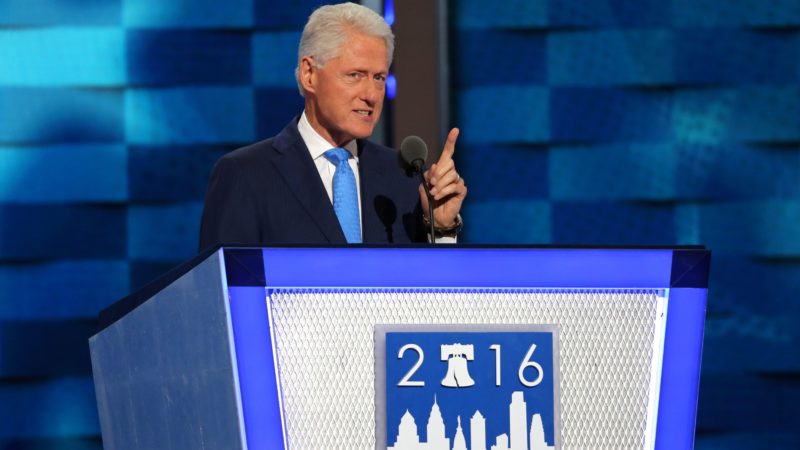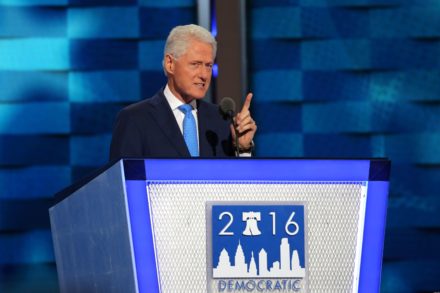

The Working Families Party was founded in 1998 by a group of progressive labor unions, community organizations and elected officials who had grown dissatisfied with the rightward drift of the Democratic Party under Bill Clinton. The Democratic Party of that era — with its embrace of “third way” politics — gave America financial deregulation (planting the seeds of the 2008 financial crisis), neoliberal free trade, welfare “reform,” and a host of other polices borrowed from conservatives to win Wall Street financing for what had been the party of Franklin Delano Roosevelt.
Fights for progressive causes throughout American history are often waged within one of the major parties—from the struggle for abolition of slavery roiling the Republican Party of the 19th century, to the battle for civil rights, which defined and transformed the Democratic Party of the mid-20th century. The players may change, but the dynamics are the same; major parties serve as a porous and changeable field of struggle.
However, sometimes lost in this analysis is the role that third party movements have played in shifting the definition of the possible. Transformative proposals, from abolition of slavery, control of monopolies, women’s suffrage to the 40-hour workweek, were germinated in new minor parties before ultimately being adopted by a major party.
Over its first two decades, the Working Families Party has existed in a sort of hybrid space—with one foot in the Democratic Party, and one foot on the outside as a third party.
The secret to the WFP’s success — which has been considerable over the years — lies with two key elements: First, the flexibility to operate simultaneously inside and outside the Democratic party, which has allowed WFP to overcome the structural barriers to third parties in the American election system. Second, because of its founding by community organizations with a high degree of sophistication in applying community and field organizing tactics, the WFP has often been the most organized show in town. Even in New York State, a reliable Democratic stronghold, the WFP has for years had a more effective field operation and a bigger roster of small donors and activists than the state Democratic Party, whose operations are largely funded by a relative handful of large donors.
However, a lot has changed in the political landscape in the US—and the world—in the last 20 years. The US after Bernie Sanders and Donald Trump is not the same as the US before them. As the keys to the WFP’s success above would indicate, much of WFP’s existence to date has been defined on rather tactical terms, shaped election by election around quite pragmatic questions of how to leverage the Democratic Party back to its labor movement and civil rights roots. However, the WFP has not had to undergo the regular exercise of creating a party manifesto, for example, nor has the question truly been called on the ideological trajectory of its program. As the Working Families Party is becoming a truly national organization, the time has come to have these discussions.
This is why we founded the Working Families Academy. Besides the deepening hunger for political education in the US (see the spike in Google searches for the term “democratic socialism” in the wake of the Sanders campaign), there is a need to clarify WFP’s analysis and sense of self.
The moment has come for the WFP to answer the intersectional and ideological questions that should define our positive program: if WFP is to combat the populism of the right, what is the worldview that it communicates to voters that stakes out WFP’s pole in the political debate? What is the party’s strategic objective: can it define the proper balance between being a third party in the American system versus being a faction of the Democratic Party?
A key element of the Working Families Academy is to engage political formations and social movements internationally. We have begun that effort in Europe because on both sides of the Atlantic we are facing similar forces of right-wing populism and an increasingly interconnected set of global institutions that are defining the terms of societal struggle. By engaging in exchange with international partners, WFP holds a mirror up to itself, and thus combats its own fuzzy thinking.
The Working Families Academy has been building relationships with political formations in Spain, Germany, Denmark, Central and Eastern Europe, and other places on the continent. US and UK politics have echoed each other across the Atlantic for many, many years, and this continues to be the case today. We have much we can learn from one another, and we look forward to future opportunities for exchange.
Steve Hughes is a key driver behind the formation of the Working Families Academy and the co-ordinator of Working Families’ program of international engagement. Prior to that he was the state director of the Working Families Party in Oregon. He now lives and works in Europe.




More from LabourList
‘What Batley and Spen taught me about standing up to divisive politics’
‘Security in the 21st century means more than just defence’
‘Better the devil you know’: what Gorton and Denton voters say about by-election